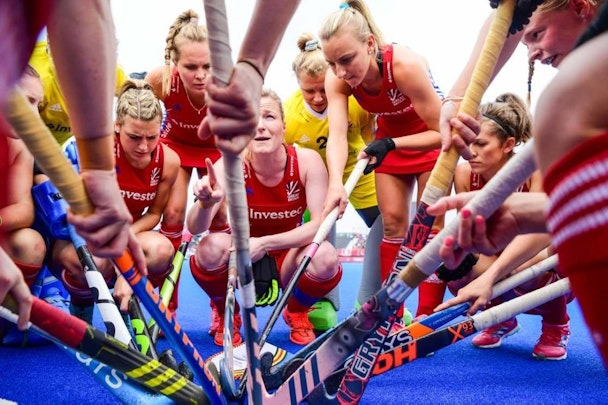Sport’s summer of uncertainty presents continued innovation potential
As we look ahead to an exciting summer, brands are assessing the chance to reconnect with audiences craving the return of live sport. Entering this new normal, there is an increasing need for sponsors to meet their audience where they are, demonstrate social purpose and tap into the next-generation consumer – presenting great opportunity for new entrant brands.

Engaging fans detached from events presents brands with a great opportunity
As with any period of significant adjustment, we must take heed of lessons learned during the pandemic, which has proven difficult for the industry and consumers alike.
An unprecedented time calls for unprecedented adaptation to changing business dynamics. Inaccessibility presents lack of intimacy or contact with consumers, many of whom continue to feel apprehensive about Covid-19’s impact. In addition, consumers are feeling a heightened sense of what really matters most in their lives and for the betterment of society.
A greater sense of community emphasizes key themes of inclusivity and results in a hostile response to any forms of elitism, as so clearly evidenced by recent, ill-thought-out ‘super league’ proposals.
Such imperatives are not entirely new; rather, they’re mission-critical now in engaging consumers still blighted by restrictions imposed on their everyday lives.
We’re all ready to leave the pandemic era behind, but disregarding its impact is not only impossible, it also means lost opportunity.
As we enter this bumper summer of sport, during a time of reinvention, the lessons learned from the pandemic can still inform our growth.
Here are some enduring lessons, which befit more than just short-term reactionary tactics – rather, they call for insights-led activation strategies to shape the future of partnership marketing.
Connect with fans wherever they are
Fans are returning at varying rates, and event promoters must focus more attention on global audiences than ever before. Two recent examples – The Virtual Hill at Wimbledon in partnership with American Express and Wasserman’s CrowdAmp technology, delivering genuine fan emotions in empty stadia – ably demonstrate how to engage fans from afar while enhancing the media and on-site experience at the same time.
Research shows that 69% of the Tennis Lovers segment have never been to Wimbledon. The Virtual Hill will bring a taste of the world-famous Wimbledon experience to the masses unable to attend on-site. Some fans may never be able to realistically attend their ‘bucket list’ events, but engaging this detached audience represents an opportunity to build significant digital scale.
The staging of sports events has changed, perhaps forever. In turn, this changes the way fans choose to consume live sport, and rights-holders must continue to adapt the holistic spectator experience accordingly.
Engaging fans detached from events presents great opportunity from both a gamification and audience growth perspective – in doing so, opening up whole new rights categories and opportunities, as demonstrated at Wimbledon this year.
Build partnerships with purpose
Consumers will support partnerships with an underlying purpose – sustainability and inclusivity being two key themes, among many. This has been evidenced in recent high-profile partnerships such as Ulysse Nardin and the Ocean Race, as well as the many partners of the Paralympics ecosystem, which may once again outstrip the Olympic Games for emotional engagement.
Brands must earn the credibility to speak out on important matters. In Wasserman’s recent ‘Step Up or Sit Out’ guide to social impact in sports and entertainment, we demonstrated how fans and consumers not only expect brand citizenship from sponsors, but also their tendency to reward such purpose with increased brand loyalty.
Just as football star and practicing Muslim Paul Pogba showed his objection to a bottle of beer in a post-match press conference, how many athletes (and fans) should feel entitled to conscientiously object to the media presence of gambling brands in sports?
There are many vices and questionable industry practices in our lives, but how brands seek to ‘do good’ and profit from fans – evidenced by an impassioned understanding of society’s most challenging issues – is a tricky path for marketers to walk, and one that will be ever more under a watchful eye if not addressed through actions over words.
Gen Z and millennial women’s emerging dominance
These increasingly important consumer demographics are completely rewriting the rules of engagement when it comes to when, where and how to capture their attention and loyalty.
Zwift’s new presenting partnership with the Tour de France Femmes signals further intent from a leading software/tech brand to engage the neglected female audience in sports. How they choose to engage the millennial audience, as well as differentiate for gen Zs, will be critical for the long-term success of the platform and cycling.
For other brands seeking to stand out from the crowd, the high-growth potential that women’s sports continue to present must not be ignored. Just as women’s football has experienced sustained growth, so are a great many other sports ripe for the most cost-efficient and high-yielding partnership opportunities.
Miss out on this dynamic at your peril – just as we’ve seen consumer backlash toward inauthentic brand partnerships or, worse, claims of ‘sportswashing’, those brands that don’t live up to the same diversity, equity and inclusion standards levied against their whole business will surely be the ones to stagnate in the longer-term.
The return of live sport this summer is undoubtedly a reason to celebrate. Just as athletes and teams will draw from their performances, so too must the sponsor community confront what lies ahead through lessons learned, strategic thinking and creativity. With this in mind, brands can take the essential steps to future-proof partnership strategies and benefit from the abundant growth potential that has arisen from the pandemic.
David Collins is senior vice-president, head of EMEA business development at Wasserman.
Content created with:

Wasserman
Wasserman is a global sports, entertainment, and lifestyle marketing agency with expertise in creating connections between brands, properties, talent, and consu...
Find out more